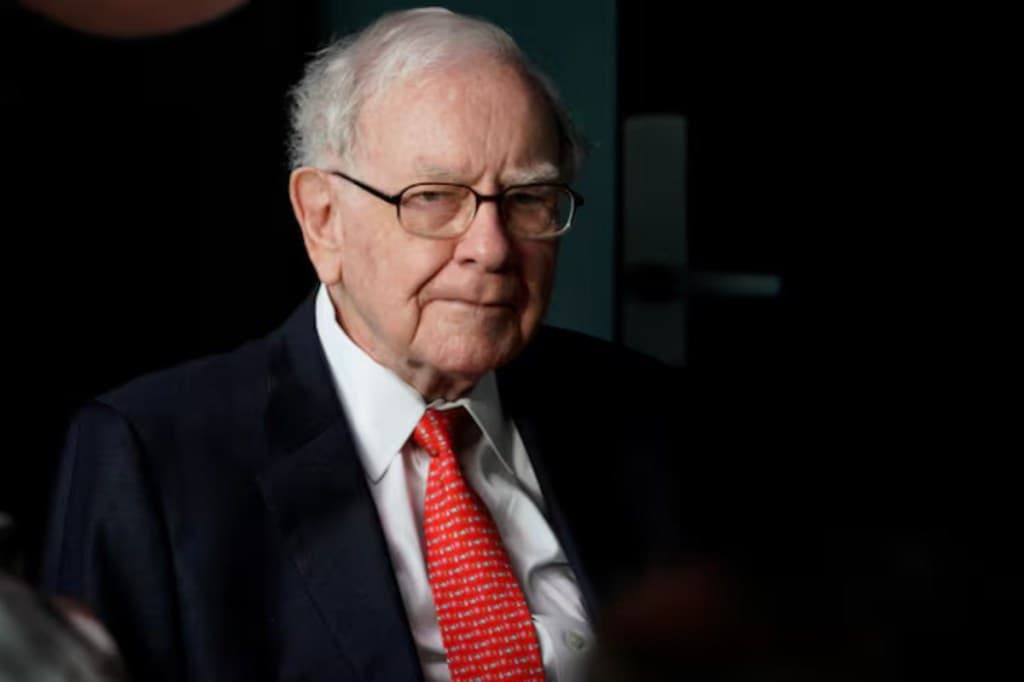In his letter to the shareholders of Berkshire Hathaway, Warren Buffett listed the key contributors to Berkshire’s performance in 2024. This was largely due to the improvement in Treasury Bill yields, higher share of equity investments, bargain buys in equity markets and investment in fundamentally good businesses. “Berkshire will never prefer ownership of cash-equivalent assets over the ownership of good businesses,” Buffett wrote. Taking a dig at the comments about Berkshire’s cash levels, Buffett wrote to shareholders that, “Berkshire shareholders can rest assured that we will forever deploy a substantial majority of their money in equities.”
Higher Treasury Bill yields
The steady rates by Treasury bills helped add to the Berkshire’s bottomline. In a year that saw 53% of 189 businesses in Buffett’s empire reporting a decline in earnings, the operating earnings surged 71%. This was largely ‘aided by a predictable large gain in investment income as Treasury Bill yields improved and we substantially increased our holdings of these highly-liquid short-term securities,” wrote Warren Buffett. According to Buffett, Berkshire’s investment and underwriting income showed significant improvement.
Major part of investment in equities
Buffet reiterated that a significant amount of Berkshire’s investment is in equities. “Berkshire shareholders can rest assured that we will forever deploy a substantial majority of their money in equities – mostly American equities although many of these will have international operations of significance.” Buffett also highlighted the investment in Japanese equities and the key 5 stocks where the company is planning to increase investment even above the 10% limit that was decided initially. The dividend investment from the Japanese companies also helped earnings performance.
Buffett pointed out that Berkshire owns a small percentage of a “dozen or so very large and highly profitable businesses with household names such as Apple, American Express, Coca-Cola and Moody’s. Many of these companies earn very high returns on the net tangible equity required for their operations.” At year-end, Berkshire’s holdings were valued at $272 billion. “Understandably, really outstanding businesses are very seldom offered in their entirety, but small fractions of these gems can be purchased Monday through Friday on Wall Street and, very occasionally, they sell at bargain prices. “We are impartial in our choice of equity vehicles, investing in either variety based upon where we can best deploy your (and my family’s) savings. Often, nothing looks compelling; very infrequently we find ourselves knee-deep in opportunities,” he wrote while explaining the investment rationale to investors.
Berkshire betting on good businesses
The Oracle of Omaha highlighted that “Berkshire will never prefer ownership of cash-equivalent assets over the ownership of good businesses, whether controlled or only partially owned.” He explained to shareholders how paper money can see its value evaporate if fiscal folly prevails. In some countries, “this reckless practice has become habitual, and, in our country’s short history, the U.S. has come close to the edge. Fixed-coupon bonds provide no protection against runaway currency. Businesses, as well as individuals with desired talents, however, will usually find a way to cope with monetary instability” as long as their goods or services are desired by the country. So, too, with personal skills. Lacking such assets as athletic excellence, a wonderful voice, medical or legal skills or, for that matter, any special talents, “I have had to rely on equities throughout my life,” he added.
Insurance earnings increase
Berkshire Hathaway’s insurance business also delivered a major increase in earnings, led by the performance of GEICO. In five years, “Todd Combs has reshaped GEICO in a major way, increasing efficiency and bringing underwriting practices up to date. GEICO was a long-held gem that needed major repolishing, and Todd has worked tirelessly.” However, he did highlight a note of caution and wrote, “no ‘monster’ event occurred during 2024. Someday, any day, a truly staggering insurance loss will occur – and there is no guarantee that there will be only one per annum.”

